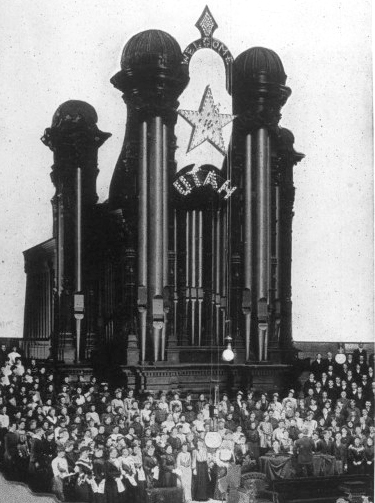
Word of the Day: Equivocal
Today’s word of the day, courtesy of http://www.wordthink.com/, is equivocal, an adjective that means “Open to more than one interpretation; ambiguous. Uncertain or questionable in nature.” Dictionary.com provides three definitions: 1. “allowing the possibility of several different meanings, as a word or phrase, especially with intent to deceive or misguide; susceptible of double interpretation; deliberately ambiguous”; 2. “of doubtful nature or character; questionable; dubious; suspicious”: and 3. “of uncertain significance; not determined.”
According to www.etymonline.com, equivocal entered the language “c. 1600, with -al + Late Latin aequivocus ‘of identical sound, of equal voice, of equal significance, ambiguous, of like sound,’ past participle of aequivocare, from aequus ‘equal’ (see equal (adj.)) + vocare ‘to call’ (from PIE root *wekw- ‘to speak’). Earlier in same sense was equivoque (late 14c.).” A transliteration of aequivocare would be to call equally one thing or another.
On this date in 1896, Utah became the 44th state of the union. Some of the territories around Utah had become states years earlier than Utah, but Utah’s journey was somewhat different.
What we now called Utah began to be settled by Mormons (members of the Church of Jesus Christ of Latter Day Saints) in 1847, after they had traveled across the country escaping religious persecution. The persecution was a result of Joseph Smith’s having a vision in which an angel led him to some golden tablets with writing. The writing concerned an ancient people and an ancient prophet, named Mormon. Smith translated these tablets and founded his new church.
Smith’s followers and converts began in Upstate, New York, moved to Ohio, and Missouri, and then to Indiana. Everywhere they went, they quarreled with each other and with the Christian settlers. In 1844, the Mormon War took place in Indiana, and Joseph Smith and his brother Hyram, who would have been the natural successor to Joseph Smith, were both killed. The members of the church split up, but most of them followed Brigham Young to Utah.
One of the religious beliefs that caused other Americans to object to the Mormons was their practice of polygamy (technically it was polygyny: the first is having more than one spouse at a time, and the latter is having more than one wife at a time). A little about polygamy. Plural marriage was allowed in Jewish culture when the Christian church got started as a part of that Jewish faith. Unfortunately for the Jews, polygamy was not permitted in Roman culture, and a couple of Roman emperors even declared it illegal, though the law had no effect on the Jews. A number of early church fathers wrote against polygamy. Then, during the medieval period, a variety of church councils condemned not only polygyny but also the keeping of a concubine while being married.
From the medieval period on, the Christian church did not permit polygamy of any sort, and since the governments of most Western countries were tied directly to the Christian church, the states also did not allow polygamy. Thus, when the Mormons began to practice plural marriage, many Christians in the United States objected strongly. So when Utah petitioned the federal government to become a state instead of just a territory, the federal government demanded that the Utah government, which was, admittedly, the same as the leadership of the Mormon church, make polygamy illegal. Utah tried to become a state for almost 50 years, but the issue of polygamy was too much for many in the United States to overcome. The church officially abandoned the practice of plural marriage in 1890, though some followers of the faith continued the practice and even continue it till this day.
In 1894, Congress passed the Utah Enabling Act, which set forth the way Utah could become a state. And on this date, Utah was officially admitted as a state.
In 1903, the people of Utah elected Reed Smoot as one of their senators. This choice led to the Reed Smoot hearings, held by the Senate to determine whether to allow Reed Smoot to take his seat, and the major concern was polygamy. The hearings went on for about three years. Among Smoot’s supporters was a senator from Pennsylvania named Boies Penrose: “Smoot’s Utah Mormonism advocated polygamy, though Smoot had only one wife. Penrose took to his feet, scowled at philandering colleagues, and asserted: ‘As for me, I would rather have seated beside me in this chamber a polygamist who doesn’t polyg than a monogamist who doesn’t monog’” (Beers, Paul B., Pennsylvania Politics Today and Yesterday: The Tolerable Accomodation [University Park: The Pennsylvania State University Press, 1980], p. 51).
I have to say this about Boies Penrose: there’s nothing equivocal about what he said.
The image is from https://ilovehistory.utah.gov/topics/statehood/index.html, and the caption says, “A choir sings in the Salt Lake LDS Tabernacle in 1896. The decorations on the organ pipes celebrate Utah’s becoming a state.”